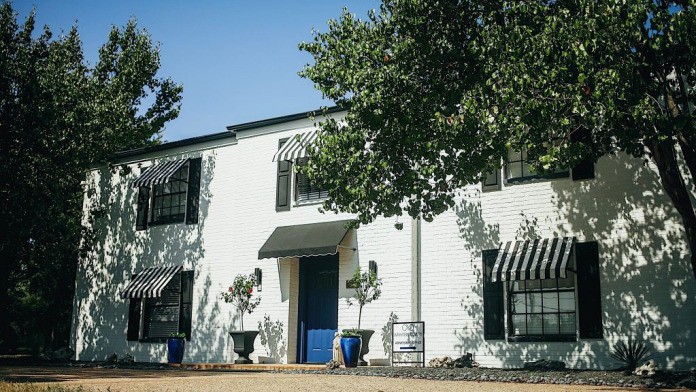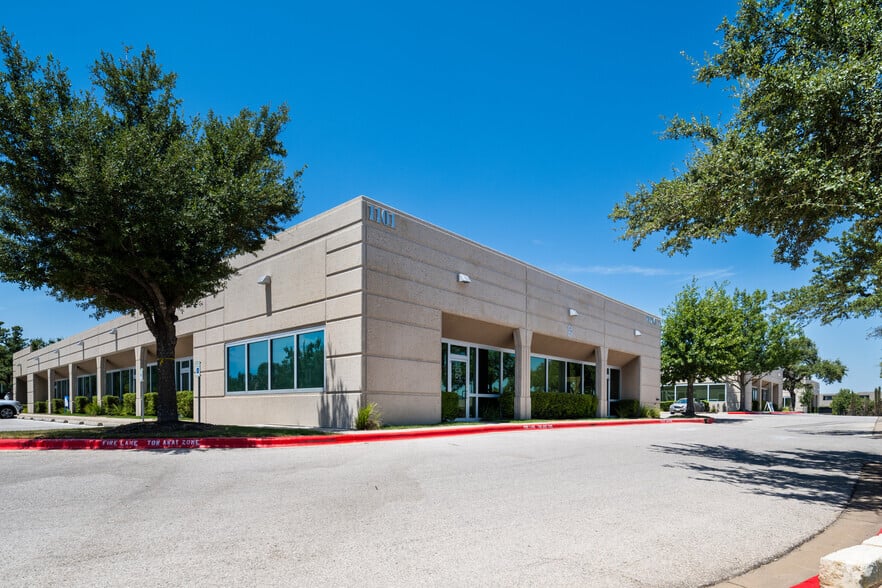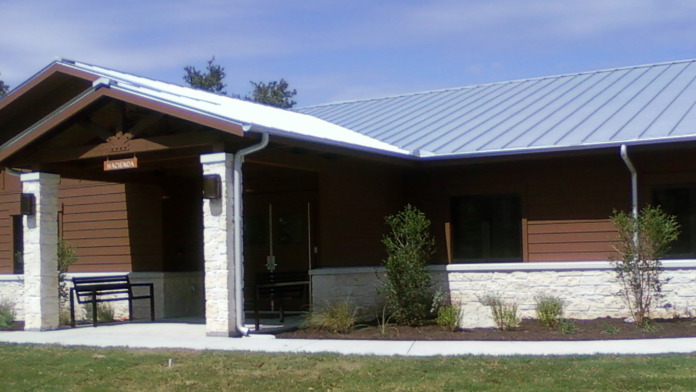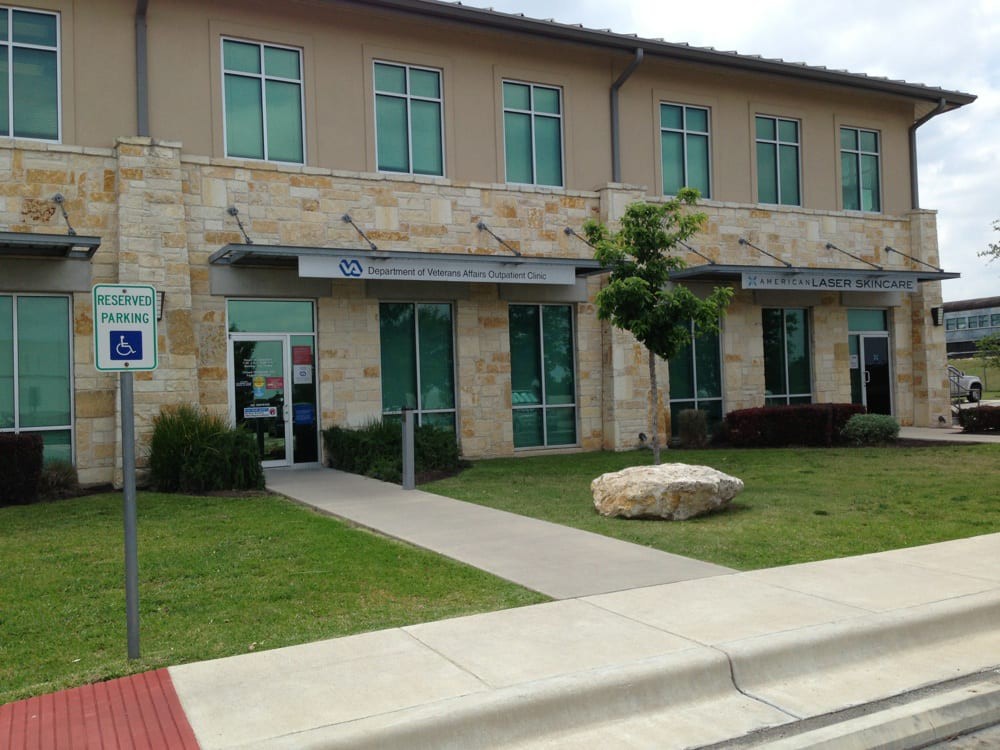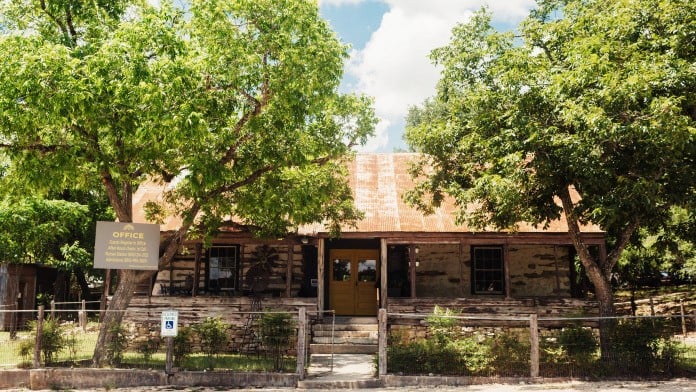About Positive Recovery Centers — Austin/Hill Country
Positive Recovery Center Austin, Hill Country, formerly known as Promises Austin, sits in the middle of the stunning landscape of the Texas Hill Country. Located in Spicewood, Texas, the center offers medical detox and inpatient drug and alcohol rehab for adult men and women.
Medical Detox in the Austin Area
Many clients begin recovery with medically supervised detox. This program treats a variety of substance use disorders (SUD) including alcohol and opioid use. They also help clients detox from prescription drugs and synthetic drugs like kratom.
The location is just under an hour from Austin in a much quieter rural environment. Being away from the noises and distractions of a bigger city gives you a chance to focus fully on your recovery.
Comprehensive Residential Addiction Treatment
Inpatient treatment focuses on physical, mental and spiritual health. Treatment plans include individual counseling using a range of proven treatment methods including dialectical behavioral therapy (DBT) and cognitive behavioral therapy (CBT).
All clients participate in the wellness program which includes yoga and meditation. It’s not unusual for individuals who are struggling with SUDs to also have poor nutrition. Another part of treatment here includes nutritional counseling and fitness activities.
A Day in the Life at a Luxury Drug and Alcohol Rehab
The natural surroundings create a tranquil environment for recovery, but the accommodations are on par with a luxury resort. Rooms are either private or semi-private and tastefully furnished with everything you need including linens. Nutritious meals are prepared by a professional chef.
The beautiful outdoor swimming pool is a popular place for clients to relax and begin building a healthy support network. The grounds are surrounded by trees and quiet walking paths. Clients frequently praise not only the caring staff but also the “effectiveness of individualized treatment and the serenity of the facility.”
The program is intensive, but the support for the whole person helps clients reconnect with themselves and learn to handle life outside treatment. Staff at Promises Austin believe in “meeting clients where they are and building a plan customized for lifelong recovery.”
Latest Reviews
Rehab Score
Location
Other Forms of Payment
Private insurance refers to any kind of healthcare coverage that isn't from the state or federal government. This includes individual and family plans offered by an employer or purchased from the Insurance Marketplace. Every plan will have different requirements and out of pocket costs so be sure to get the full details before you start treatment.
Self-pay involves paying for treatment out of your own pocket. You can use savings or credit, get a personal loan, or receive help from family and friends to fund your treatment. If you don't have insurance or your insurance plan doesn't cover a specific program, self-pay can help ensure you still get the care you need.
Financial aid can take many forms. Centers may have grants or scholarships available to clients who meet eligibility requirements. Programs that receive SAMHSA grants may have financial aid available for those who need treatment as well. Grants and scholarships can help you pai for treatment without having to repay.
Medicare is a federal program that provides health insurance for those 65 and older. It also serves people under 65 with chronic and disabling health challenges. To use Medicare for addiction treatment you need to find a program that accepts Medicare and is in network with your plan. Out of pocket costs and preauthorization requirements vary, so always check with your provider.
Addiction Treatments
Levels of Care
Drug and alcohol addiction often takes a heavy toll on one’s body. Over time, a physical dependence can develop, meaning the body physiologically needs the substance to function. Detox is the process of removing drugs and/or alcohol from the body, a process that can be lethal if mismanaged. Medical detox is done by licensed medical professionals who monitor vital signs and keep you safe, healthy, and as comfortable as possible as you go through detox and withdrawal. Using the latest evidence-based approaches and state-of-the-art medications such as Suboxone and Vivitrol, Promises medical detox team is able to curb the discomfort of withdrawal from drugs and alcohol and minimize drug cravings. The patient will meet daily with a medical doctor and receive care from experienced and compassionate nurses 24 hours a day. Medical detox typically takes from 3 to 7 days, but will last as long or as short as medically indicated to ensure your safety and comfort.
At certain points in the recovery process, it's important to have support available 24/7. 24-hour clinical care offers a safe environment in which to recover from drug or alcohol addiction in peace, knowing medical detox and other treatment will happen with professionals on hand.
Residential treatment programs are those that offer housing and meals in addition to substance abuse treatment. Rehab facilities that offer residential treatment allow patients to focus solely on recovery, in an environment totally separate from their lives. Some rehab centers specialize in short-term residential treatment (a few days to a week or two), while others solely provide treatment on a long-term basis (several weeks to months). Some offer both, and tailor treatment to the patient's individual requirements. Promises Treatment Centers - County Road offers an innovative, highly effective long-term inpatient drug rehab treatment program for adults ages 26 and over that helps patients become more secure in their recovery and more skilled in maintaining their sobriety. This program allows Promises to offer more recovery assistance as clients refine the new direction for their life.
12-step programs are addiction recovery models based on Alcoholics Anonymous (AA). A number of substance abuse programs (including some drug and alcohol rehab centers) use the 12 steps as a basis for treatment. Beginning steps involve admitting powerlessness over the addiction and creating a spiritual basis for recovery. Middle steps including making direct amends to those who've been hurt by the addiction, and the final step is to assist others in addiction recovery in the same way. 12-Step offshoots including Narcotics Anonymous (NA), Cocaine Anonymous (CA), Dual Recovery Anonymous (DRA), Sex and Love Addicts Anonymous (SLAA) and Gamblers Anonymous (GA).
Completing a drug or alcohol rehab program shouldn't spell the end of substance abuse treatment. Aftercare involves making a sustainable plan for recovery, including ongoing support. This can include sober living arrangements like halfway houses, career counseling, and setting a patient up with community programs like Alcoholics Anonymous (AA) or Narcotics Anonymous (NA).
For clients who cannot or should not return to their former residence after treatment, Promises offers recommendations to sober living homes in the local area based on each client’s specific needs. These are comfortable and safe environments designed to cultivate a sober, balanced lifestyle through structured guidelines and accountability. Residents may return to school or work or volunteer while participating in 12-Step meetings, intensive outpatient programs, life coaching, random drug testing, and other types of treatment.
Intensive Outpatient Programs (IOP) are for those who want or need a very structured treatment program but who also wish to live at home and continue with certain responsibilities (such as work or school). IOP substance abuse treatment programs vary in duration and intensity, and certain outpatient rehab centers will offer individualized treatment programs.
Intervention services helps family or friends of addicts stage an intervention, which is a meeting in which loved ones share their concerns and attempt to get an addict into treatment. Professional intervention specialists can help loved ones organize, gather, and communicate with an addict. They can guide intervention participants in describing the damage the addict's behavior is causing and that outside help is necessary to address the addiction. The ideal outcome of an intervention is for the addict to go to rehab and get the help they need.
Treatments
The goal of treatment for alcoholism is abstinence. Those with poor social support, poor motivation, or psychiatric disorders tend to relapse within a few years of treatment. For these people, success is measured by longer periods of abstinence, reduced use of alcohol, better health, and improved social functioning. Recovery and Maintenance are usually based on 12 step programs and AA meetings.
During rehab in Texas, you'll deal with underlying issues that contribute to addiction. By addressing these challenges and learning healthy ways to cope with them, you'll develop strategies that help you live a drug-free lifestyle.
Many of those suffering from addiction also suffer from mental or emotional illnesses like schizophrenia, bipolar disorder, depression, or anxiety disorders. Rehab and other substance abuse facilities treating those with a dual diagnosis or co-occurring disorder administer psychiatric treatment to address the person’s mental health issue in addition to drug and alcohol rehabilitation. Promises Treatment Centers - County Road guests receive integrated treatment for substance abuse and mental health disorders from a team of experienced counselors, a full-time physician and our 24-hour nursing staff. Their doctorate-level psychologist completes a comprehensive assessment with every guest, utilizing 24 distinct assessment tools, and is available for individual dual diagnosis therapy sessions. They also offer a specialized trauma track led by an EMDR-trained trauma specialist.
A combined mental health and substance abuse rehab has the staff and resources available to handle individuals with both mental health and substance abuse issues. It can be challenging to determine where a specific symptom stems from (a mental health issue or an issue related to substance abuse), so mental health and substance abuse professionals are helpful in detangling symptoms and keeping treatment on track.
Opioid rehabs specialize in supporting those recovering from opioid addiction. They treat those suffering from addiction to illegal opioids like heroin, as well as prescription drugs like oxycodone. These centers typically combine both physical as well as mental and emotional support to help stop addiction. Physical support often includes medical detox and subsequent medical support (including medication), and mental support includes in-depth therapy to address the underlying causes of addiction.
Programs
Adult rehab programs include therapies tailored to each client's specific needs, goals, and recovery progress. They are tailored to the specific challenges adult clients may face, including family and work pressures and commitments. From inpatient and residential treatment to various levels of outpatient services, there are many options available. Some facilities also help adults work through co-occurring conditions, like anxiety, that can accompany addiction.
AtPromises Treatment Centers - County Road, everyone is treated with respect and compassion. This is a safe place for you and your loved ones to be authentic and vulnerable and to work through the issues that have held you back. Within an accepting space, gay, lesbian, bisexual, transgender, questioning or intersex clients can feel safe and supported by other clients and our treatment team, which includes LGBT staff who have an intimate understanding of the challenges that LGBT clients face in recovery.
Young adulthood can be an exciting, yet difficult, time of transition. Individuals in their late teens to mid-20s face unique stressors related to school, jobs, families, and social circles, which can lead to a rise in substance use. Rehab centers with dedicated young adult programs will include activities and amenities that cater to this age group, with an emphasis on specialized counseling, peer socialization, and ongoing aftercare.
Clinical Services
Cognitive Behavioral Therapy (CBT) is a therapeutic approach shown to be effective in treating a number of mental health issues and addictions. In CBT, clients learn to identify unhealthy thought patterns and self-talk. The therapist helps the client recognize the connection between their thoughts, feelings and destructive behaviors and develop more productive patterns and coping skills.
Whether a marriage or other committed relationship, an intimate partnership is one of the most important aspects of a person's life. Drug and alcohol addiction affects both members of a couple in deep and meaningful ways, as does rehab and recovery. Couples therapy and other couples-focused treatment programs are significant parts of exploring triggers of addiction, as well as learning how to build healthy patterns to support ongoing sobriety.
Creative expression through art therapy is not only relaxing but helps clients connect with their inner selves through the inspiration of images and their physical manifestation in artistic expression. Art therapy helps restore physical, mental and emotional well-being. Some clients in rehab who have difficulty communicating verbally may be able to use art therapy to express themselves. This type of therapy can help in resolving issues, identifying and managing feelings and behaviors, and improving awareness and self-esteem. Research has found that art therapy can be a beneficial treatment for psychiatric disorders.
Dialectical Behavior Therapy (DBT) is a modified form of Cognitive Behavioral Therapy (CBT), a treatment designed to help people understand and ultimately affect the relationship between their thoughts, feelings, and behaviors. DBT is often used for individuals who struggle with self-harm behaviors, such as self-mutilation (cutting) and suicidal thoughts, urges, or attempts. It has been proven clinically effective for those who struggle with out-of-control emotions and mental health illnesses like Borderline Personality Disorder.
Equine therapy gives clients direct, regular contact with horses, which provides physical, emotional, and mental rewards. Equine therapy can decrease hostility and feelings of anger, lower stress levels, increase trust, improve self-esteem, and provide a greater sense of patience. When a horse is paired with a troubled person, a bond gradually develops between them. Horses are extremely sensitive to the feelings and emotions of humans—they will take whatever emotions or feelings that they are receiving from a human and reflect them back to the person. Once a connection has been established between animal and human, positive change is quickly promoted within the individual.
Experiential therapy is a form of therapy in which clients are encouraged to surface and work through subconscious issues by engaging in real-time experiences. Experiential therapy departs from traditional talk therapy by involving the body, and having clients engage in activities, movements, and physical and emotional expression. This can involve role-play or using props (which can include other people). Experiential therapy can help people process trauma, memories, and emotion quickly, deeply, and in a lasting fashion, leading to substantial and impactful healing.
Research clearly demonstrates that recovery is far more successful and sustainable when loved ones like family members participate in rehab and substance abuse treatment. Genetic factors may be at play when it comes to drug and alcohol addiction, as well as mental health issues. Family dynamics often play a critical role in addiction triggers, and if properly educated, family members can be a strong source of support when it comes to rehabilitation. Promises Treatment Centers - County Road addiction rehab involves family in treatment, providing family therapy as clinically appropriate and offering an intensive family program. Loved ones learn about the disease of addiction, family roles, signs of relapse, relapse prevention and how to best support themselves and their loved one in recovery.
Fitness therapy blends exercise with psychotherapy for a fun, inspiring, and effective way of treating addiction and other issues. By incorporating movement into counseling sessions, clients become more empowered, motivated, and goal-oriented, all while strengthening their bodies and becoming more flexible. Fitness Therapy is usually used to complement a course of treatment (inpatient or outpatient) to make it even more successful. Increasing the connection between a patient’s mind and body helps both with healing as well as in creating new, healthy habits.
Group therapy helps clients move beyond the isolation and shame of addiction and mental health issues. Within a supportive group of peers, a specially trained therapist draws upon group dynamics to guide interactions that encourage self-reflection, accountability, empathy and healthy communication skills. Group therapy can include a number of topics including: addiction education, trauma, shame-resilience, relapse prevention, recovery skills, spirituality and family dynamics.
At Promises Treatment Centers - County Road treatment center, clients receive at least two one-on-one therapy sessions a week. This ensures a high level of individualized care. In individual counseling, clients work with their primary therapist more intensely on their specific issues and discuss how to apply and practice their skills and new understandings in group therapy. Individual therapy also provides an opportunity to adjust a client’s overall treatment plan as their recovery journey and treatment needs evolve.
Promises Treatment Centers - County Road allow clients to have access to newspapers and magazines, listen to the radio, call loved ones, and watch TV at appropriate times, with supervision. By utilizing a real-world perspective, Promises prepares clients for day-to-day life, such as driving past a liquor store or reading an advertisement for an alcoholic beverage. The key is that Promises teaches clients how to process feelings that may arise while exposed to these situations.
Nutrition therapy, aka medical nutrition therapy (MNT), is a way of treating physical, emotional, and medical conditions through diet. Specific dietary plans are designed by professional nutritionists or registered dietitians, and patients follow them in order to positively affect their physical and mental health.
Recreational therapy (aka therapeutic recreation) uses creative and fun activities to help with addiction recovery. Recreational therapists lead patients in entertaining and engaging activities like sports or games; art (drawing, painting, sculpture); drama, music, and dance; and/or community outings (field trips) to improve patients' physical, social, and emotional well-being.
Trauma therapy addresses traumatic incidents from a client's past that are likely affecting their present-day experience. Trauma is often one of the primary triggers and potential causes of addiction, and can stem from child sexual abuse, domestic violence, having a parent with a mental illness, losing one or both parents at a young age, teenage or adult sexual assault, or any number of other factors. The purpose of trauma therapy is to allow a patient to process trauma and move through and past it, with the help of trained and compassionate mental health professionals. Promises Treatment Centers - County Road treatment team members are specially trained in trauma and its effects and integrate trauma work into many aspects of care. They offer regular trauma resiliency groups and provide a number of therapies shown to be effective in treating trauma such as EMDR and cognitive behavioral therapy.
Amenities
-
Private Setting
-
Yoga Studio
-
Spa
-
Private Rooms
-
Gym
Staff & Accreditations
Staff
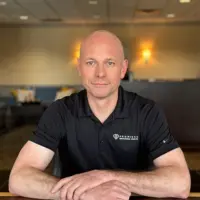
Scott Sasserson
CEO

Richard Prickett
CFO

Pubali Chakravorty, SHRM-SCP
President

Trish Caldwell, MFT, LPC, CAADC, CCDP-D, CCTP
Senior VP, Clinical Services

Laura Clarke
Senior VP Operations

Amy Wilson
Senior VP Business Development
Accreditations

The Joint Commission, formerly known as JCAHO, is a nonprofit organization that accredits rehab organizations and programs. Founded in 1951, the Joint Commision's mission is to improve the quality of patient care and demonstrating the quality of patient care.
Joint Commission Accreditation: Yes
Accreditation Number: 570115

LegitScript has reviewed Positive Recovery Centers — Austin/Hill Country as part of their certification program, and has determined that it meets the LegitScript standards for legality, safety and transparency.
LegitScript verified in November 2019

The Substance Abuse and Mental Health Services Administration (SAMHSA) is a branch of the U.S. Department of Health and Human Services. Established in 1992 by congress, SAMHSA's mission is to reduce the impact of substance abuse and mental illness on American's communities.
SAMHSA Listed: Yes

